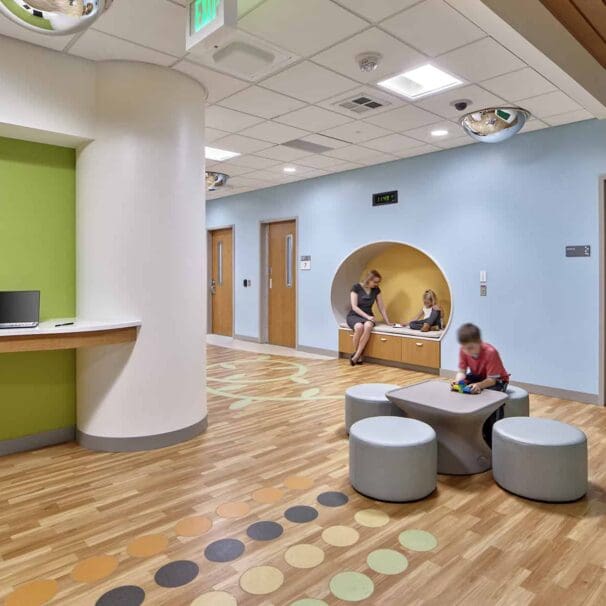HealthProviders DB is a comprehensive database of healthcare providers, including a complete directory of all Adolescent and Children’s mental health clinics and centers.
Clinic/Center Healthcare Taxonomy Code 261QM0855X
As of today, the following are the total number of Adolescent and Children Mental Health Clinic/Centers nationally, in your state, and near your location.
Select a State below to view the list by State. Additionally, you can narrow the list by city, among other options, from the Filter Panel, which you can open by clicking the vertical ellipses ⋮ in the upper right corner of the app.
Alaska – Alabama – Armed Forces Pacific – Arkansas – American Samoa – Arizona – California – Colorado – Connecticut – District of Columbia – Delaware – Florida – Federated States of Micronesia – Georgia – Guam – Hawaii – Iowa – Idaho – Illinois – Indiana – Kansas – Kentucky – Louisiana – Massachusetts – Maryland – Maine – Marshall Islands – Michigan – Minnesota – Missouri – Northern Mariana Islands – Mississippi – Montana – North Carolina – North Dakota – Nebraska – New Hampshire – New Jersey – New Mexico – Nevada – New York – Ohio – Oklahoma – Oregon – Pennsylvania – Puerto Rico – Palau – Rhode Island – South Carolina – South Dakota – Tennessee – Texas – Utah – Virginia – Virgin Islands – Vermont – Washington – Wisconsin – West Virginia – Wyoming
Medicare
The following are the total number of Adolescent and Children Mental Health Clinic/Centers that accept Medicare in your State, the number that have opted out of Medicare, and the total number excluded from participation in Medicare nationwide.
The diagram below shows all the Acupuncturists across the country, represented by blue bubbles. The larger the bubble, the greater the concentration of providers in that area. Red bubbles represent Medicare-excluded providers, with the larger bubbles indicating a higher percentage of excluded providers in that region. You can change the bubble size to be based on exclusions from the Size menu.
What do Adolescent and Children’s Mental Health Clinics/Centers do?
Adolescent and Children’s Mental Health Clinics/Centers provide specialized mental health care for youth, offering various services including assessment, diagnosis, and treatment for conditions like anxiety, depression, and ADHD.
They offer various levels of care, including outpatient therapy, family counseling, intensive day programs (Partial Hospitalization Programs), and inpatient hospital care for more severe issues.
These centers employ a team-based approach, with psychiatrists, psychologists, and therapists developing personalized, evidence-based treatment plans that involve families in the process.
Common Services Provided
Mental Health Assessments and Evaluations: A comprehensive process to understand a child’s symptoms, history, and needs to determine a proper diagnosis.
Therapy and Counseling
Individual Therapy: One-on-one sessions with a therapist or psychologist.
Family Therapy: Sessions involving the child and their family to improve communication and support systems.
Group Therapy: Support groups for children and families to connect and learn coping skills together.
Specialized Therapies: Techniques such as Cognitive Behavioral Therapy (CBT), Play Therapy, and Art Therapy are used to help children develop new attitudes and behaviors.
Medication Management: A psychiatrist evaluates and manages medication for children with conditions such as mood disorders or ADHD.
Intensive Programs
Partial Hospitalization Programs (PHPs): Intensive day programs that offer more structure than outpatient therapy for crisis management, depression, and daily living skills.
Inpatient Services: Hospital-based care for children and adolescents with acute emotional or psychiatric concerns.
Specialized Programs: Centers may have dedicated programs for specific issues like Eating Disorders, Anxiety, and Obsessive-Compulsive Disorder (OCD), or Autism Spectrum Disorders.
Who They Serve
- Children and adolescents from birth to age 18.
- Families need support and resources to help a child struggling with mental health challenges.
Key Characteristics
Community Integration: Centers work to connect families with community resources and support systems after treatment.
Team-Based Approach: Care teams often include psychiatrists, psychologists, social workers, nurses, and creative art therapists.
Evidence-Based Treatment: Care is grounded in research and best practices to ensure optimal outcomes.
Family-Centered Care: Families are actively involved in the treatment plan to support the child’s overall well-being.

